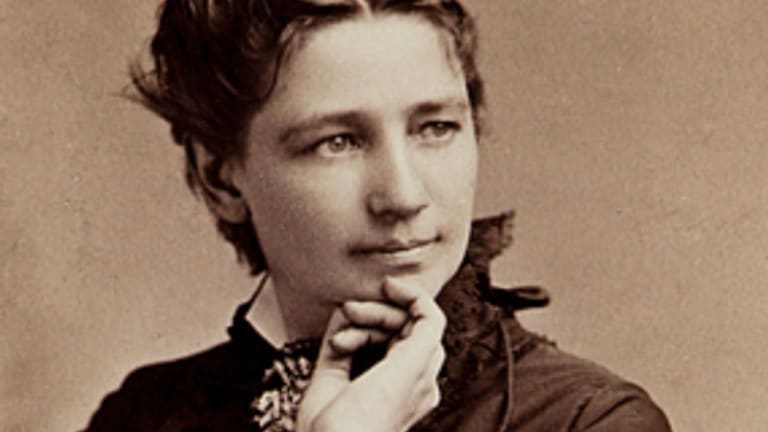Before Hillary Clinton, there was Victorial Woodhull
Victoria Woodhall was a pioneer in many fields.
During her 88 years, Victoria Woodhull was an equal rights activist, publisher, and the first woman to run for president in the United States. Her beliefs framed the women’s rights movement and radical ideas when our country was only about 100 years old.
Woodhull Claflin was born on September 23, 1838 in Ohio. From a young age, she traveled with her sister, Tennessee Claflin, performing psychic readings to provide an income for her family.
At the age of 15, Woodhull married Canning Woodhull and they had two children. The family moved around a lot to accommodate Woodhull’s practices as a medium. After 11 years of marriage, dealing with Canning’s alcoholism, abuse, and disconnection to his family, Woodhull divorced him, despite the fact that divorce was viewed as scandalous and women who did so often were considered outcast.
Woodhull was an advocate for free love, meaning that a person can stay with someone as long they choose. She met Colonel James Harvey Blood who had served in the Union Army and was an educated man who shared similar ideas with her. They settled in New York where Woodhull opened a salon open to radical discussions and where she gained a name as a gifted conversationalist. This was when she became interested in women’s suffrage and met people who had shared the same beliefs.
Woodhull and Claflin had been mediums for Cornelius Vanderbilt who was interested in gaining knowledge about financial strategy through the spirit world. Vanderbilt supplied the sisters with financial aid so they could invest in the stock market. After they became successful, the two opened a brokerage house where they made a fortune in the New York Stock Exchange. They became the first women to own a brokerage firm and were applauded by famed women’s rights activist Susan B. Anthony.
The money gained from the brokerage firm was used to start a newspaper, Woodhull and Claflin’s Weekly, the first weekly newspaper started by women. For the next six years the newspaper went on to address women’s suffrage, labor reform, and other radical ideas at the time. Woodhull’s success allowed her to give lectures on constitutional equality and attracted many suffrage leaders.
In 1871, Woodhull announced she would be running for president. She was nominated by the Equal Rights Party, sharing the ticket with Fredrick Douglass, an abolitionist leader, as vice president, although he never acknowledged the nomination. She ran for office, but she did not meet all of the requirements. For example, she was younger than the minimum age of 35.
During this time, many disagreed with Woodhull’s view on free love. The debate over it caused such a riot that Woodhull and Claflin were sent to jail for publishing such articles about free love in their newspaper. They stayed in jail for a month, and Woodhull ended up missing Election Day in 1872. Although Woodhull’s ideas were known among suffrage leaders and followers, some of her ideas were too radical for them to follow. In the end Woodhull paid nearly $500,000 in bail to clear all charges. Ulysses S. Grant won the election.
In 1876 Woodhull divorced Colonel Blood, which marked the end of Woodhull and Claflin’s Weekly.
The two sisters, bankrupted by 1877, decided to start anew in England. Here Woodhull continued to give lectures and present her ideas. She met John Biddulph Martin and the two got married. Woodhull still spread her ideas of women’s suffrage and her radical beliefs on love. In 1901 Martin had passed away, marking the end of Woodhull’s work. She retired and moved to the country to rest for the last years of her life. She passed away June 9, 1927.

LunaBella Peralta has been part of The Armijo Signal since her freshman year and now, as a junior and serving in her second year as Events Editor, she...
